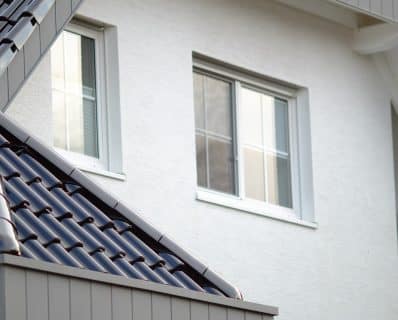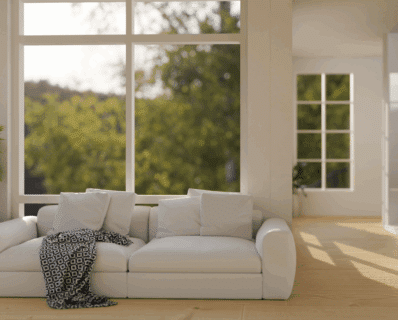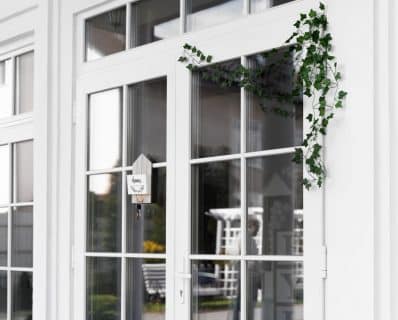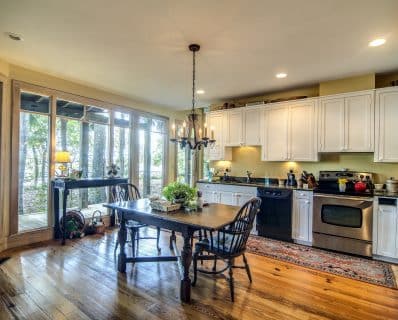How To Soundproof a Door

Many people living in apartment buildings often have to deal with noise from their neighbors, so how to soundproof a door is an important question. It is through the doorway that most of the sound seeps in, making it difficult to concentrate or relax.
Soundproofing doors cannot completely eliminate external sound interference, but it is possible to significantly reduce it. That being said, there are a number of ways you can soundproof your door diy. How? – Find out in our article.
Contents
Why is soundproofing a door important?
The doorway is the largest gap in the wall that lets in noise. This means that sound penetrates the sides of the space as well as the bottom. In addition, most interior doors have a hollow core, which also has a bad effect on their transmission capacity. Even through the door handle mechanism extraneous noises can penetrate. With soundproofing, these problems can be solved.
In addition to protecting against noise, proper soundproofing will prevent heat loss and cold air from entering the room. Some materials that are used for soundproofing doors are even able to protect against extreme temperature differences. In this way, you can save significantly on additional costs for heating or cooling the rooms.
After soundproofing doors, many residents note that there is less dust and moisture in the rooms and the air quality is improved. Along with other benefits, spending time in the flat is much more comfortable and enjoyable.
When is it necessary to soundproof doors?
It is a good idea to soundproof doors in the following situations:
- If you have overly noisy neighbors who often shout, play loud music at all hours of the day, then soundproofing your doors is a great option to ensure that you stay quiet. Of course it will not completely eliminate all sound, but it will significantly reduce noise.
- A sound proof door is also a good idea if you are working remotely from home. It will help you shut yourself off from the outside world and concentrate on your work. You won’t be disturbed by barking dogs, neighbors or music – anything that might distract you from your work. Isolation is especially necessary for people in creative professions, accountants, managers, sound engineers. Research shows that the absence of distractions can increase a person’s performance by 48%.
- If you like to listen to music loudly, or rehearse with a musical instrument at home, you should also consider insulating the door. This will help you avoid scandals and arguments with your neighbors.
- You may want to soundproof your door if you want your conversations to be completely confidential. With a tightly closed door, no one will be able to overhear what you are saying on the phone, what you are discussing with your conversation partner and other conversations.
- A well soundproofed door can increase the value of a property when it is sold. In fact, many people are prepared to overpay for these extra room benefits when they buy a house.
Not everyone has the opportunity to buy a new door with minimal soundproofing. If you do not have enough money, we suggest you use one of the options for installing soundproofing yourself. It will help you save a lot of money and reduce noise intrusion.
How can I soundproof an interior door quickly and cheaply?
Before you start the process, you must determine how and from where sound enters the room. You should then choose a way to block out the noise, which will depend on your budget, abilities and the source of the problem. Here are a few options from which you can choose the best way to soundproof your door based on your needs.
Acoustic panels
These acoustic panels are made from a variety of materials, from Styrofoam to quality wood. Their cost is much lower than today’s solutions in the form of glass fiber acoustic blankets. However, if you compare acoustic panels to a normal sheet of plywood they will cost more. Depending on the material used, the panels are quite effective at absorbing sound waves. They can be nailed to the door or glued on strips if you don’t want to damage the property.
Automatic door closer
This type of soundproofing is suitable for you if sound travels through the lower part of the door opening. The system consists of a concealed mechanism with a spring that drives a special brush. When the door is opened, the brush rises and when it is closed, it falls. Thus close contact with the floor is created and extraneous noise does not escape through the gap.
Door sweeping
Another option for blocking the sound coming through the lower door crevice is to install a brush. This will require a drill and screws. The brush itself is usually cut from soft rubber. In many cases, this method is very helpful in getting rid of noise from outside.
Door seals
The first thing you should do to soundproof your room is to fit door seals around the perimeter of the doorway. They are a dense form of neoprene. To further block out sound waves, you can fix the seal around the edges of the door. To fill small cracks and gaps that have formed after the installation of the gasket, we recommend using a special acoustic sealant.
Door gasket
If large gaps remain between the door itself and the frame after the gasket has been fixed, door gaskets can also be used to prevent sound waves from entering the door. These are made from a similar material, neoprene. The door gaskets are permanently attached to the sides and top of the frame. Manufacturers even make adjustable gaskets – the best solution if the door warps over time or is not perfectly shaped, to begin with.
The best ways to soundproof a metal door
The main difficulty in insulating a metal door from outside sound is that it is difficult to drill through. But if you still need to block out noises, we suggest using one of the options available.
Door sills
These are rubber bumpers made from thick neoprene. Unlike door brushes, they are attached to the floor of the doorway and not to the door itself. Some thresholds are flat, while others protrude strongly upwards. If you are attracted by this type of soundproofing option, bear in mind: that carpeting can interfere with the tight fit of the thresholds. This means that you will be less likely to achieve the required protection from outside noise.
Acoustic panels
Vinyl panels are commonly used on metal doors. This is one of the cheapest ways of soundproofing a door. You will need to buy a sheet of vinyl and cut it to fit the door. You can simply use double-sided adhesive tape to fix it in place. Although it will spoil the look of the door, it will still prevent sound waves from entering the flat or house.
A soundproof blanket
Soundproof blankets are considered the most effective way of blocking out noise from the outside. They are usually made from a fairly strong and expensive material, glass wool. However, the installation of soundproof blankets does not require any effort on your part. It is sufficient to fix the suction cups on the door and hang the blankets on them. If necessary, you can remove them at any time.
Fire safety
Before you begin renovation work to install soundproofing on your door, it is advisable to check with your city’s fire service to see if it can be done. Many cities, states, and counties have certain fire safety rules and regulations. The fact is that some soundproofing options can make the door heavier, which may prevent someone from leaving the room in the event of a fire.
There is another reason – soundproofing can interfere with fire, carbon monoxide, and smoke detectors. Although we have only given examples of the safest methods, it is advisable to check with your local fire brigade to find out what regulations apply in your city. It does not matter whether you want to install soundproofing in your own home or rented accommodation.
A few myths about soundproofing doors
Many people try to improvise when the question arises: how to soundproof a door and block out outside noises from the house. Unfortunately, most of these methods do not work as well as they should. There’s a simple explanation: many methods simply block out noise but don’t absorb it completely. Here are just a few examples of popular misconceptions:
Carpets on floors and walls absorb noise from neighbors. Some people think this is one of the most effective, but it is not. Even thick carpets do not completely absorb noise. They only block out a few decibels.
Egg cartons are great soundproofing options. These products are good for those who want to reduce echo in a room. However, they will do little to block sound waves traveling through door crevices.
Paint can suppress outside noise. It requires a certain density and mass to absorb noise, so there is no evidence that paint has these abilities.
Because of the belief in various myths, many homeowners and flat owners lose thousands of dollars every day. This is usually because people often confuse the concept of “noise abatement” and “soundproofing”. In our article, we have listed options that can help you deal with the problem of blocking out outside noise.
Where can I buy soundproofing materials?
It is not a problem to buy soundproofing materials today. You can find them in building supermarkets, marketplaces, and niche shops. Sound-absorbing materials are also often sold in music equipment shops. The best option among the places listed is building supermarkets. Not only can you buy door soundproofing materials there, but you can also choose the tools you will need for the repair work. In addition, you always have the option of consulting a consultant if you are having difficulty making your choice.













